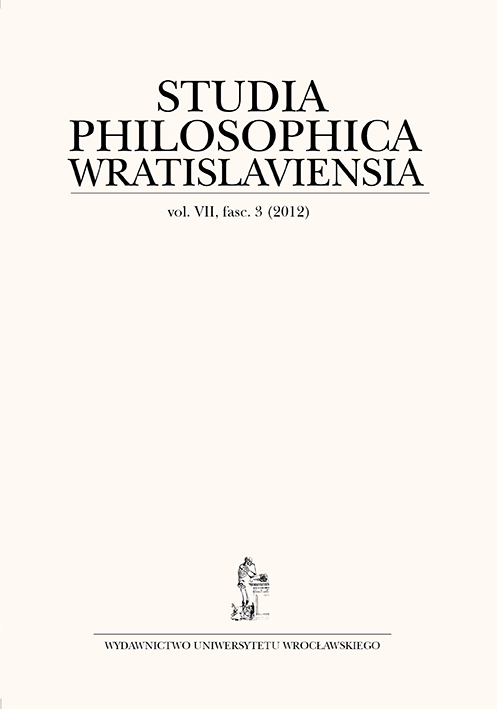

Articles

This paper is devoted to Bachelard’s philosophical approach to the problem of imagination. His conception of imagination combines psychoanalysis, phenomenology and the analysis of rhythm. His studies provide answers to question of cognitive possibilities characteristic of an image, i.e. its role in modeling of the world; its relevant and necessary qualities the ontology of the image, as well as its functions which result in these qualities ethical quality of imagination. A wide range of image activity results in its various definitions which enable Bachelard’s to create his own topology of images. According to the authoress, Bachelard emphasized imagination’s activity, complexity and order. The energy, matter and dynamics of the imaginative image became crucial principles of his conception. A picture reveals itself as a universal and complete structure located on the first and basic position in the order of thought; it is being followed by a concept which is created in opposition to it. Bachelard emphasizes also a subjective approach to “beautiful” images. The authoress claims that studies of imagination and its images require a specific methodological approach which takes into consideration the meaning of material and the dynamics of the image.